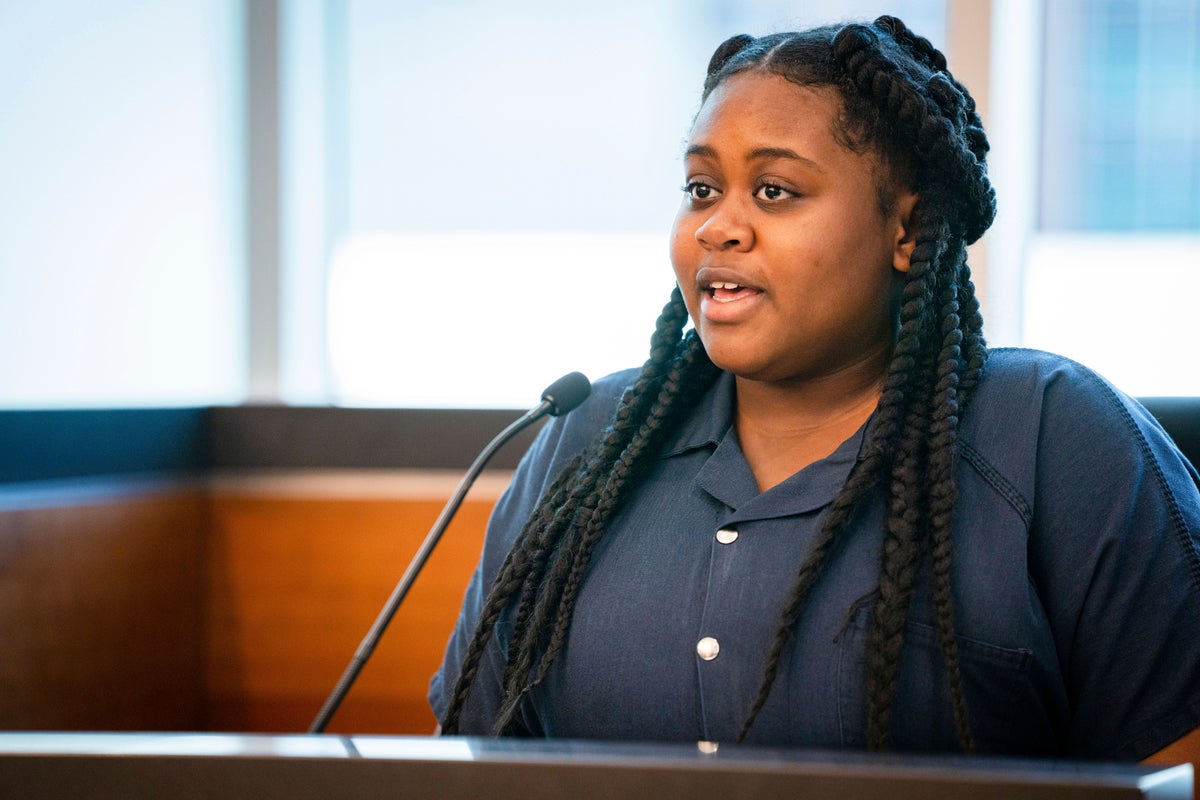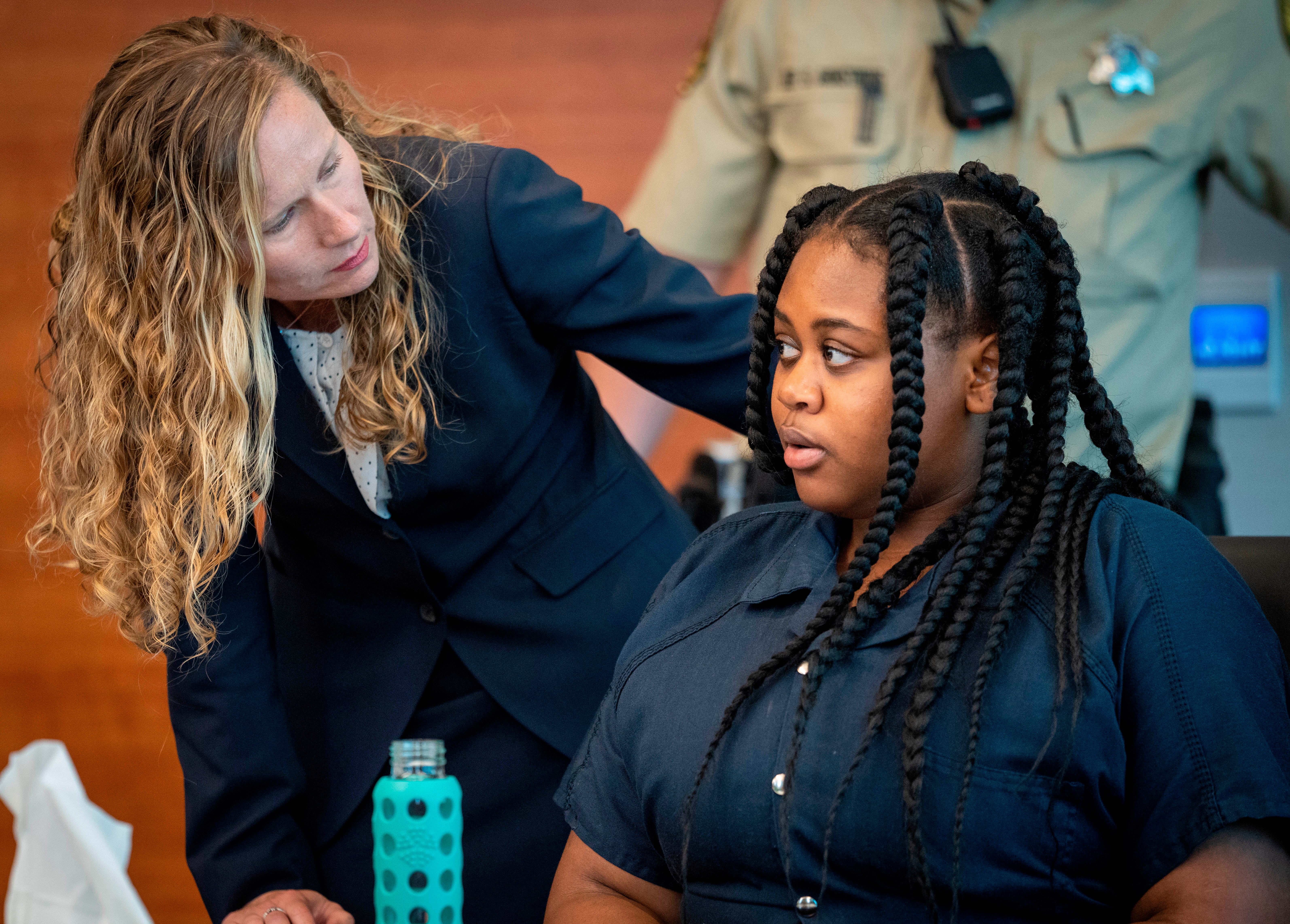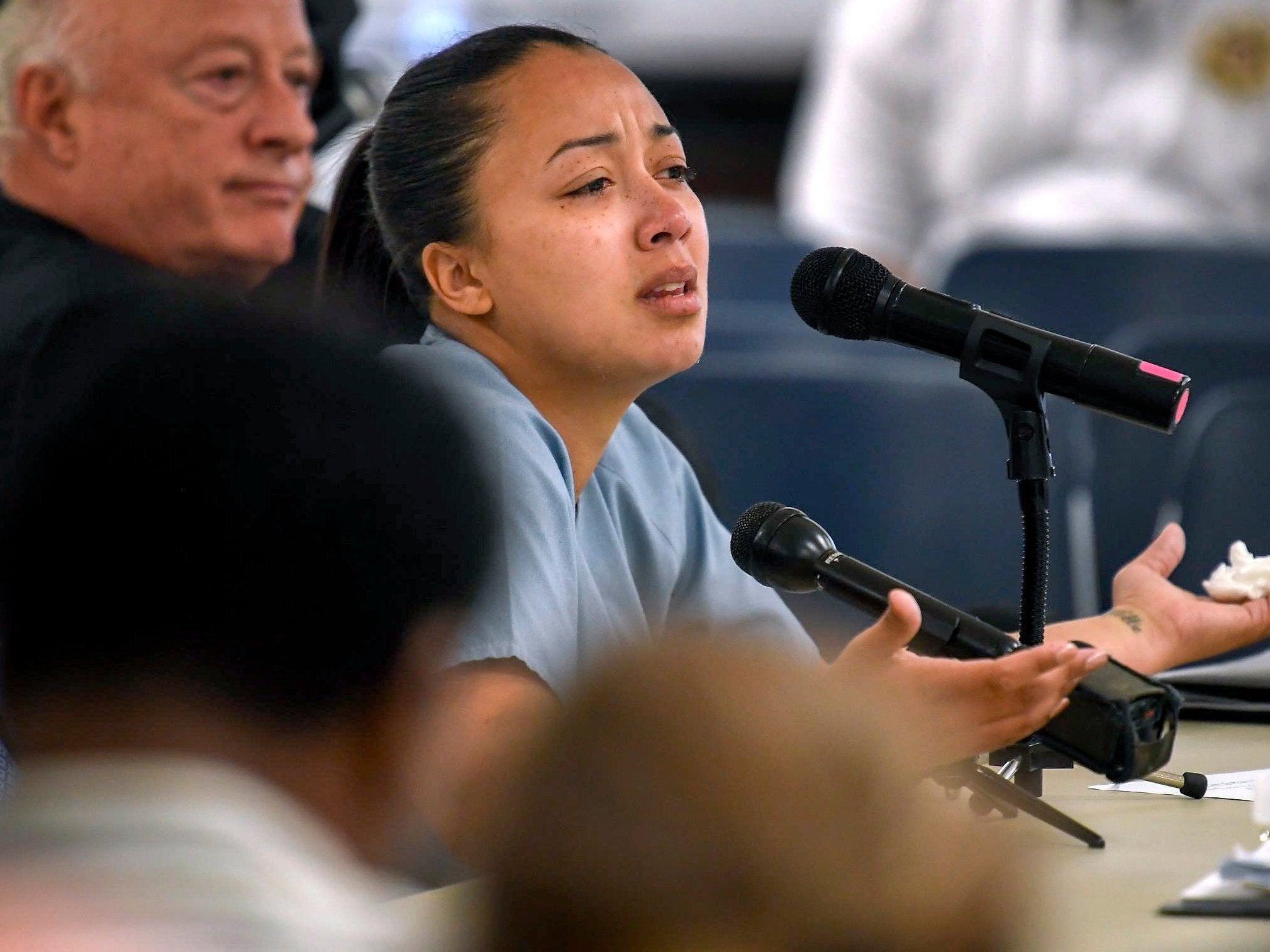
Few cases shine a light on systemic failures to protect vulnerable people in the US more than that of Pieper Lewis. The 18-year-old will face a probation violation hearing this week after walking out of a women’s residential facility and cutting off her electronic ankle tag. Her attorneys are still seeking to delay her sentencing while they seek an updated psychological evaluation to present to the judge.
Lewis’s is a sad tale of compounded abuse. She entered the foster care system as a baby and was adopted at the age of 3; she says she ran away at 15 because her home life with her adoptive parents had become volatile and abusive. She ended up being sex trafficked by a man she met while she was on the street. The man who trafficked her would ply her with alcohol and take her to meet associates, who would pay to rape her while she was either conscious or passed out. One of those men, 37-year-old Zachary Brooks, allegedly raped Lewis on multiple occasions. She says that she woke up during one such assault in 2020, grabbed the knife off Brooks’s nightstand and stabbed him to death.
It is generally accepted that the story Pieper Lewis tells about that night is true. During her trial for killing Brooks, prosecutors accepted that she had been sex trafficked and recommended that she be spared the 20 years in prison she faced. A report by the Des Moines Register found police had never investigated the sex trafficking allegations, and to this day, the person she says trafficked her remains a free man. By the time Lewis met him, she was already vulnerable. She had tried to leave home before, during which time she stayed at a hostel for at-risk youth and was sexually assaulted.
Lewis was spared a federal prison sentence by the judge who heard her original case and was instead put on five years’ probation, given 200 hours’ community service, and ordered to live at the Des Moines Fresh Start Women’s Center after she pleaded guilty to willful injury and voluntary manslaughter. It was that residential centre that she absconded from in November. Now 18, she faces sentencing for her escape — and the possibility of further prison time, plus a fine.

The most egregious fine that Lewis has had to pay is unconnected to this misdemeanor, however. Because of a 1997 Iowa state law, during her original manslaughter trial, the teenager was ordered to pay $150,000 to her dead rapist’s estate. A GoFundMe started by one of her former schoolteachers ended up covering the cost, but its very existence poses some tricky questions for those working in the Iowa justice system. So does the fact that during her five years’ probation, any relatively minor violation could lead to her spending 20 years behind bars.
As a vulnerable and traumatised teen victim of sexual trafficking with no family safety net, Lewis is at risk of offending in the future. Though her sentence was more lenient than many had feared, it still poses a challenge and could, activists who work with vulnerable young women say, potentially send her spiraling into a life in and out of prison. Indeed, the fact that she violated the conditions of her parole — which required her to live at the residential women’s centre, where she says she “didn’t feel safe,” for the full five years of her probationary period — points to the fact that this wasn’t as compassionate a sentence as it seemed on the surface. “I was on quarantine the last week I was there,” she said, “and I wasn’t doing therapy, I didn’t take my meds. My routine was all out of whack… And I liked to go to work, I liked to go to therapy, I liked being outside. And being trapped in a room reminded me of my past life and reminded me — made me feel like I was being locked up again.”
In an op-ed for The Appeal last year, Mon Mohapatra challenged the idea that “alternatives to incarceration” — such as the sentence handed down to Lewis when she was still a juvenile — are any more progressive than prison time itself. Mohapatra pointed out that Lewis was forced to live in a correctional facility to which she had to pay rent and was confined to a “digital prison” because she wore a GPS tag that tracked her movements at all times. On top of that, “if Lewis failed to participate in the center’s programs sufficiently, if she re-offended, or if she was otherwise unable to meet the conditions of her deferred judgment, she could likely be ordered to prison after all— as subsequent events have shown,” Mohapatra wrote. “Under supervision, Lewis was once again at great risk of being criminalized, just as she had been while awaiting trial.”
Lewis’s case is not an isolated one. A number of young women have been prosecuted for attacking or killing their rapists and traffickers over the past decade. In 2019, Cyntoia Brown-Long was released from prison after serving 15 years — half her life — after being convicted of murdering her rapist. Brown-Long had been sold into sex slavery when she was 16 years old, and she shot and killed a man who she said was raping her for money before fleeing with his wallet and two guns. Prosecutors called her a “child prostitute” and “opportunistic”, and she was sentenced to life behind bars. In the state of Tennessee, that meant she could be “considered” for release after 51 years. Indeed, the fact that she only served 15 years is somewhat of a miracle.

Brown-Long’s case went viral after it was picked up by celebrities including Rihanna, Kim Kardashian West and Elizabeth Banks, and she was ultimately granted clemency in 2019. One wonders what might have happened to Brown-Long if her pleas had not reached the ears of famous people. And it’s important to note that even after she was granted clemency, she does not have unconstrained freedom: She has a decade of parole ahead of her, as well as mandated counseling sessions and community service.
Brown-Long apologised to the family of the man she killed and, in a memoir titled Free Cyntoia: My Search for Redemption in the American Prison System, said she regretted not taking the opportunity to speak directly to his mother during her trial. She’d been advised by her lawyer that she shouldn’t because it would harm her case — and in that moment, she wrote: “I realized how truly messed up the system was.”
Pieper Lewis remains inside that system, now held at Polk County Jail while she awaits her hearing. Unlike Cyntoia Brown-Long, she was at least tried in juvenile court rather than as an adult. But her ordeal is far from over, and whatever sentence she receives will have lifelong repercussions for a young woman who only became a legal adult a few months ago. She is what Mon Mohapatra describes as an “imperfect victim”, whose story makes a lot of people uncomfortable. Where she goes from here is unclear — in the short term and, more concerningly, the long term.
Wide-eyed and chubby-cheeked in an oversized jumpsuit, Lewis looks the teen she is each time she makes a courtroom appearance. In a video interview from jail with the Des Moines Register earlier this week, she laments the fact that she hasn’t been given any resources for rehabilitation during her time at the women’s residential facility, despite the best efforts of everyone around her.
“My juvenile judge really tried, my DHS worker really tried, my foster mom really tried, my attorneys really tried,” she says. “My real supporters tried their best, but we had no outcome.”







